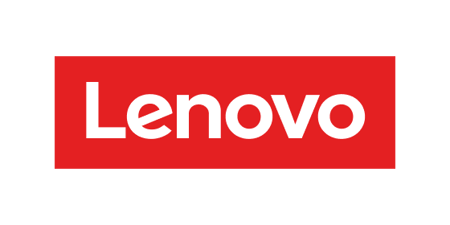
Client:Lenovo Group
Region:Asia Pacific & Japan
Industry:High Tech
Information Technology (IT)
Lenovo Group Integrates Intelligent Technologies with RPA Software to Improve the Efficiency of Internal Audit Process

1,500
saved hours/year
87%
faster in internal audit
Client Overview
Lenovo Group is a leading proponent in implementing an intelligent digital transformation strategy and has successfully developed an internal audit robot tool to manage employee reimbursements.
The internal audit of employee reimbursements is one of the most challenging activities facing enterprises with thousands of employees today. Robotic process automation (RPA) software has emerged as an optimal solution for this challenging task with its ability to automate repetitive tasks normally performed by people.
As the world’s leading technology company, Lenovo Group is one of the forerunners in its deployment. The Group is a leading proponent in implementing an intelligent digital transformation strategy and has successfully developed an internal audit robot tool to manage employee reimbursements.
The audit robot successfully integrates RPA with an optical character recognition (OCR) capability, an intelligent self-service chatbot and other intelligent technologies. Electronic invoices can be automatically downloaded, verified, and categorized for audits and used to develop internal audit reports. RPA robots can also automate inspection and spreadsheet generation, minimizing the impact of system abnormalities on business operations.
Multi-layered Approach to Internal Audits
Nowadays, many enterprises select a Software-as-a-Service (SaaS) platform to improve office efficiency and reduce costs in the purchase, set-up and maintenance of the audit infrastructure. However, users do not have directly access to the application programming interface (API) from the service providers, and are unable to gain access to the core database. This means enterprises cannot utilize the data to carry out additional tasks such as internal auditing.
Lenovo Group is using Workday as the platform for employees to reimburse their expenses. The internal audit team must manually download the expenses report and e-invoices, then manually enter them before they can develop the final audit report.
The critical challenges of leveraging a SaaS platform to implement internal reimbursement audits include:
The huge volume of expense reports and e-invoices need to be downloaded manually. The process is tedious and highly repetitive, which consumes too much time and resources for auditors.
The manual operation of such activities for a long time may lead to staff fatigue, which is likely to cause operational errors and affect the accuracy of the internal audit report. Manual operation also means a longer audit lifecycle, creating potential threats to enterprise finance.
After an internal evaluation, Lenovo Group decided to deploy a RPA on its employee reimbursement auditing digital workforce.
Intelligent and Automatic Internal Audits
It only took Lenovo Group 50 days to complete the development and deployment of RPA employee reimbursement audit robot, and the robot can automatically generate expense reports through download, verification and processing of all the e-invoices from the employees.
The results are significant in two areas:
Significant Economic Benefits
The Group’s global internal audit department regularly inspects employee reimbursements through random checks. That might involve thousands of expense reports and invoices. In the past, the Group had to allocate three staff to spend at least five days per month manually download everything and running the audit. With RPA in place, the robot can complete the same task in just five hours, saving 1500 hours of labor costs every year.

Optimize Workflows
With the help of robots, the system can save four working days in developing the internal audit reports, which is 87 percent less time than before. The error rate is extremely low, which guarantees the accuracy of the audit report. This is an important step in preempting any financial losses to the company.
The robot can also perform automatic inspection as part of its daily routine. When the robot spots any error, it will notify the developer or maintenance personnel as an early warning. The relevant personnel can take immediate action, greatly enhancing the reliability of the system.
Now, the RPA robot has become a powerful “employee” at Lenovo Group. The robot can automatically log onto Workday system, navigate data, enquire information, and download reimbursement reports. The robot allows an online internal audit to be completed in an efficient and seamless way and reduces workforce and cost at the same time.
Exploring the Possibilities of Digital Intelligence
The Lenovo Group believes digital intelligence can bring numerous possibilities. In addition to the RPA robot, OCR technology, which was solely developed by the Lenovo Group, it is a critical part of the internal audit system. With OCR, key information such as invoice numbers, project names and period of service are automatically identified and recorded. The report will then undergo matching verification and manual confirmation if necessary.
The integration of RPA and a chatbot “IT Robbie” is another popular application. Lenovo Group has been deploying “IT Robbie”, an intelligent self-service robot, to provide automated services for employees. The integration of RPA and IT Robbie can help employees utilize the RPA system more effectively.
Depending on the business, implementation of RPA can vary, but the underlying principle remains the same.
With the integration of RPA and AIOps (artificial intelligence to enhance IT Operations), Lenovo Group has now developed an advanced system for auditing employee reimbursements. The solution has addressed key pain points and improved the overall user experience. The results are more than the sum of its parts. We hope that more enterprises can benefit from our successful experience and bring digital transformation into their businesses.
Bonnie Qiu • Global IT Operation Director of Lenovo Group
Related case studies
Ready for your own case study?
Speak to our team of knowledgeable experts and learn how you can benefit from agentic automation.





